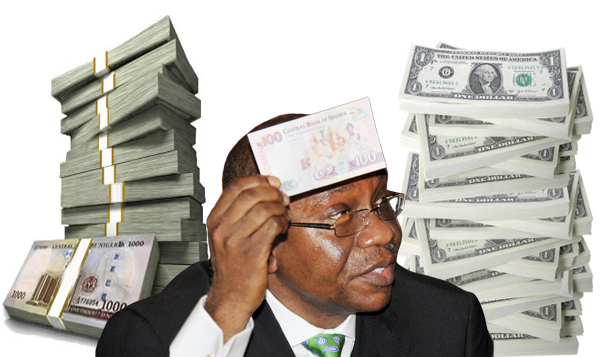
Nobody really needed to tell Nigeria’s Central Bank that the country’s economy was on its knees. What with foreign investment into Nigeria shrinking to an unimaginable level. Local businesses too have been terribly hit by difficulties in securing foreign exchange needed to import new raw materials and equipment.
Yesterday, the CBN announced a foreign exchange policy regime which is already being interpreted by many local and foreign analysts as devaluation of the naira. Instead of doing another pegging of the exchange rate, the bank’s governor, Godwin Emefiele said: “The exchange rate would be purely market-driven. I don’t expect that any other exchange rate will be recognized. ”
Indeed, the general expectation is that this move by the CBN will bring about devaluation by as much as 36 per cent by June 20 when a new trading system begins.
Some of the finer details of the new policy are that CBN will select a group of about 10 primary forex dealers through which the naira will be traded. Even so, there will be only a single exchange rate meaning that the dealers will trade at the same rate. CBN’s intervention in the market by buying and selling forex is not ruled out but the policy says it will do so “as the need arises.” In the words of Emefiele: “We are talking about an open, transparent two-way system.”
If nothing else, the new policy also shows that President Muhammadu Buhari has yielded to pressure over the issue of devaluation. The President had before now insisted that Nigeria would gain nothing from devaluation but would lose in the long run. His argument was that the country had no local products or services where exportation would be encouraged by devaluation of the naira.
The position of both the Presidency and CBN was therefore in favour of putting a peg on the exchange rate. As it has been lately, the peg is 197-199 naira to a dollar. However, at the open market or parallel market which Nigerians call ‘the real market,’ the naira has even gone for 370 to the dollar.

Dangote Refinery Slashes Fuel Prices Again, Eases Economic Hardship
NNPC Ltd And First E&P Commence Oil Production At OML 85
NNPC Ltd And Partners Donate State Of The Art Library To Niger Delta University
Air Peace Expands Route Options For Lagos-London Service